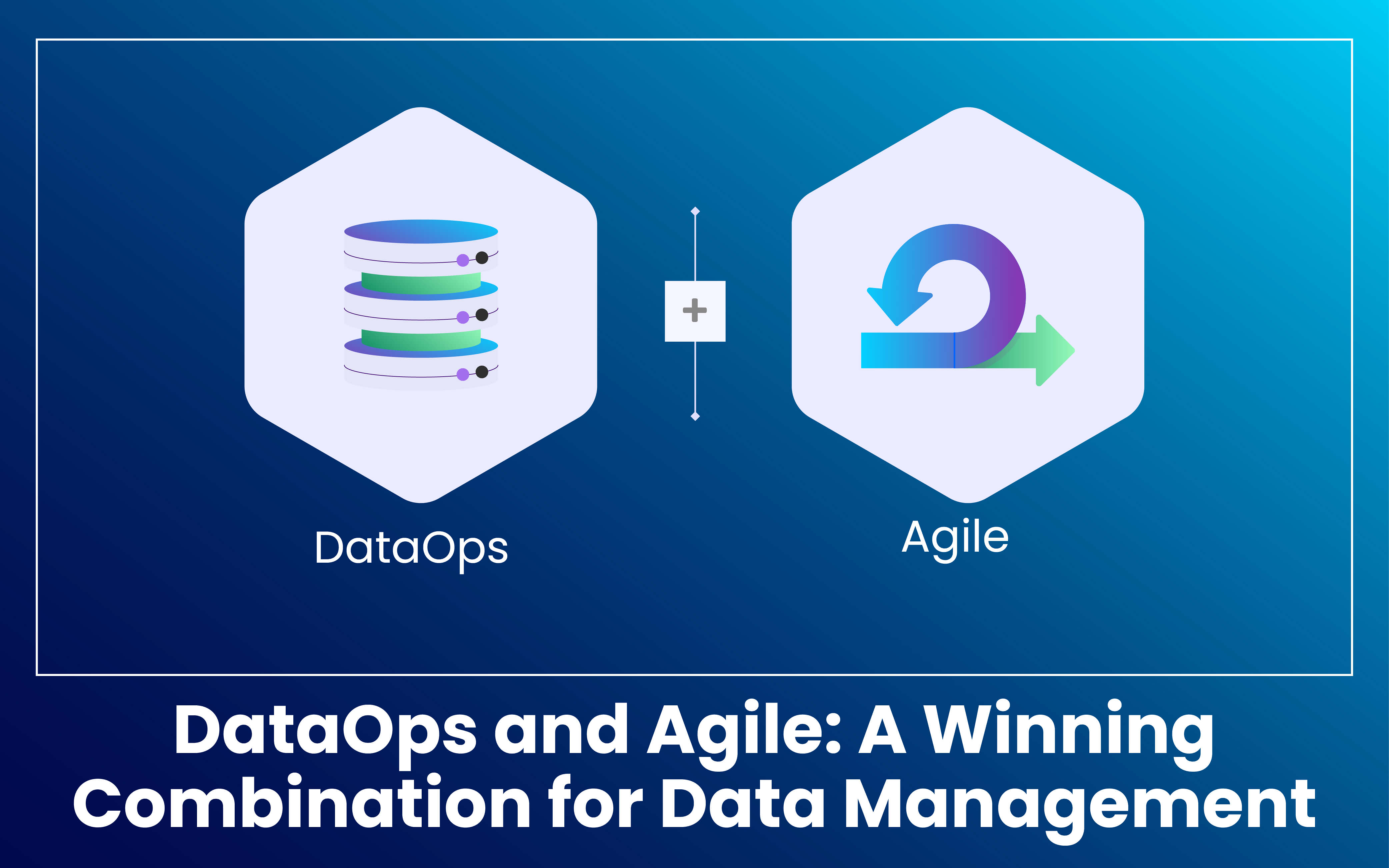Blogs
To know about all things Digitisation and Innovation read our blogs here.
Agile Transformation
DataOps and Agile: A Winning Combination for Data Management
SID Global Solutions
24 April 2023

As organizations continue to adopt and rely on data-driven decision making, the need for effective data management has become more important than ever. However, traditional approaches to data management often struggle to keep pace with the rapid rate of change in modern software development. In response, many organizations have turned to agile development methodologies and DataOps to improve their data management practices.
In this article, we will explore the concept of DataOps, its benefits, and how it can be integrated with agile methodologies to create a winning combination for data management.
Also Read: Why Agile Isn’t Enough: Exploring Modern Software Development Methodologies
What is DataOps?
DataOps is a methodology that seeks to improve the efficiency and effectiveness of data management by applying principles and practices from DevOps to the data management process. In essence, DataOps is a fusion of data management and DevOps, with a focus on automation, collaboration, and continuous improvement.
At its core, DataOps is about improving the speed and accuracy of data delivery while reducing the risk of errors and failures. By applying DevOps principles such as automation, continuous integration, and continuous delivery to data management, organizations can significantly improve their ability to manage and deliver data.
Benefits of DataOps
The benefits of DataOps are numerous and can have a significant impact on an organization’s data management practices. Some of the key benefits of DataOps include:
- Improved Data Quality: By automating data management processes, organizations can significantly reduce the risk of human errors and ensure that data is delivered in a timely and accurate manner.
- Faster Time-to-Insights: DataOps can help organizations reduce the time it takes to extract insights from data by improving the speed and efficiency of data delivery.
- Greater Agility: By applying agile methodologies to data management, organizations can more easily adapt to changes in business requirements and respond quickly to emerging opportunities.
- Increased Collaboration: DataOps emphasizes collaboration between data scientists, developers, and operations teams, which can help to break down silos and improve communication.
- Better Resource Utilization: By automating data management processes, organizations can reduce the amount of time and resources required to manage and deliver data, which can result in cost savings.
Also Read: Platform Engineering: The Key to Building Long-Lasting Software Solutions
Integrating DataOps with Agile
While DataOps and agile development are separate methodologies, they share many common principles and can be integrated to create a powerful data management framework. The key to integrating DataOps with agile development is to focus on collaboration, automation, and continuous improvement.
- Collaboration: Both DataOps and agile development emphasize collaboration between different teams and stakeholders. By working together, data scientists, developers, and operations teams can share knowledge and insights, which can help to improve the efficiency and effectiveness of data management.
- Automation: Automation is a core principle of both DataOps and agile development. By automating repetitive tasks, such as data cleansing and ETL processes, organizations can significantly improve the speed and accuracy of data delivery.
- Continuous Improvement: DataOps and agile development both emphasize continuous improvement through regular feedback and evaluation. By continuously monitoring and improving data management practices, organizations can ensure that they are delivering high-quality data that meets the evolving needs of the business.
Best Practices for DataOps and Agile Integration
To successfully integrate DataOps with agile development, organizations should follow some best practices:
- Define Data Requirements: Clearly define data requirements in collaboration with stakeholders to ensure that the data being delivered meets business needs.
- Use Agile Scrum Framework: Use agile scrum framework to deliver data through sprints, with regular reviews and retrospectives.
- Automate Data Delivery: Automate data delivery processes, including data cleaning, transformation, and delivery.
- Build a Collaborative Culture: Encourage collaboration and communication between data scientists, developers, and operations teams.
- Continuous Feedback and Improvement: Continuously collect feedback and improve data management practices, including data delivery processes, data quality, and data infrastructure.
- Monitor and Track Data: Establish monitoring and tracking mechanisms to ensure data quality and consistency.
- Adopt DevOps Practices: Adopt DevOps practices, such as continuous integration, continuous delivery, and infrastructure as code (IaC), to automate data management processes.
- Implement Data Security Measures: Implement data security measures to ensure the confidentiality, integrity, and availability of data.
- Use DataOps Tools: Use DataOps tools, such as data cataloging, data integration, and data pipeline automation tools, to streamline data management processes.
- Emphasize Training and Education: Emphasize training and education for data scientists, developers, and operations teams to ensure that everyone has the necessary skills and knowledge to work with data effectively.
Also Read: How Monitoring-as-Code Improves DevOps Collaboration and Communication?
Conclusion
DataOps and agile development are two powerful methodologies that can be integrated to create a winning combination for data management. By applying DevOps principles to data management processes, organizations can significantly improve the speed and accuracy of data delivery, while reducing the risk of errors and failures. The use of agile methodologies can also help organizations to be more agile and responsive to changes in business requirements, while promoting collaboration and communication between different teams and stakeholders.
To successfully integrate DataOps with agile development, organizations should focus on collaboration, automation, and continuous improvement. By following best practices and leveraging DataOps tools, organizations can create a data management framework that is agile, efficient, and effective.









